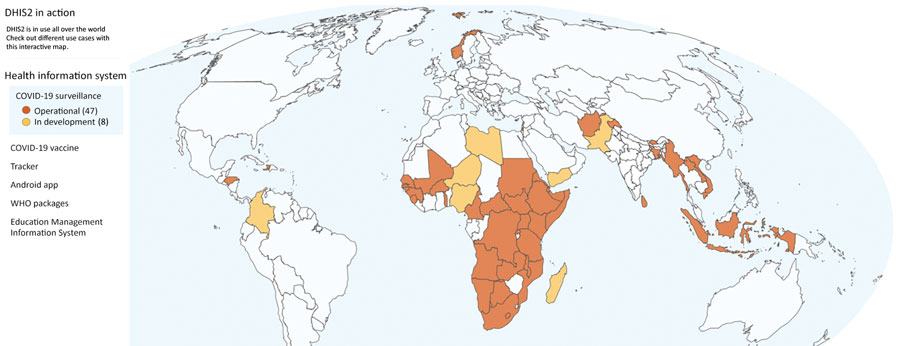Volume 28, Supplement—December 2022
SUPPLEMENT ISSUE
Surveillance
Extending and Strengthening Routine DHIS2 Surveillance Systems for COVID-19 Responses in Sierra Leone, Sri Lanka, and Uganda
Figure 1

Figure 1. Countries using the District Health Information Software version 2 (DHIS2, https://dhis2.org) platform for COVID-19 surveillance, as described in review of extending and strengthening routine DHIS2 surveillance systems for COVID-19 responses in Sierra Leone, Sri Lanka, and Uganda. The online map (https://dhis2.org/in-action, cited 2022 Sep 8) is interactive and indicates which countries have DHIS2 operational or in development for COVID-19 surveillance in the country’s health management information system. Surveillance can include case-based surveillance, contact tracing, port of entry screening, hospital stay monitoring, call center data, and exposure risk assessment.
Page created: October 13, 2022
Page updated: December 11, 2022
Page reviewed: December 11, 2022
The conclusions, findings, and opinions expressed by authors contributing to this journal do not necessarily reflect the official position of the U.S. Department of Health and Human Services, the Public Health Service, the Centers for Disease Control and Prevention, or the authors' affiliated institutions. Use of trade names is for identification only and does not imply endorsement by any of the groups named above.